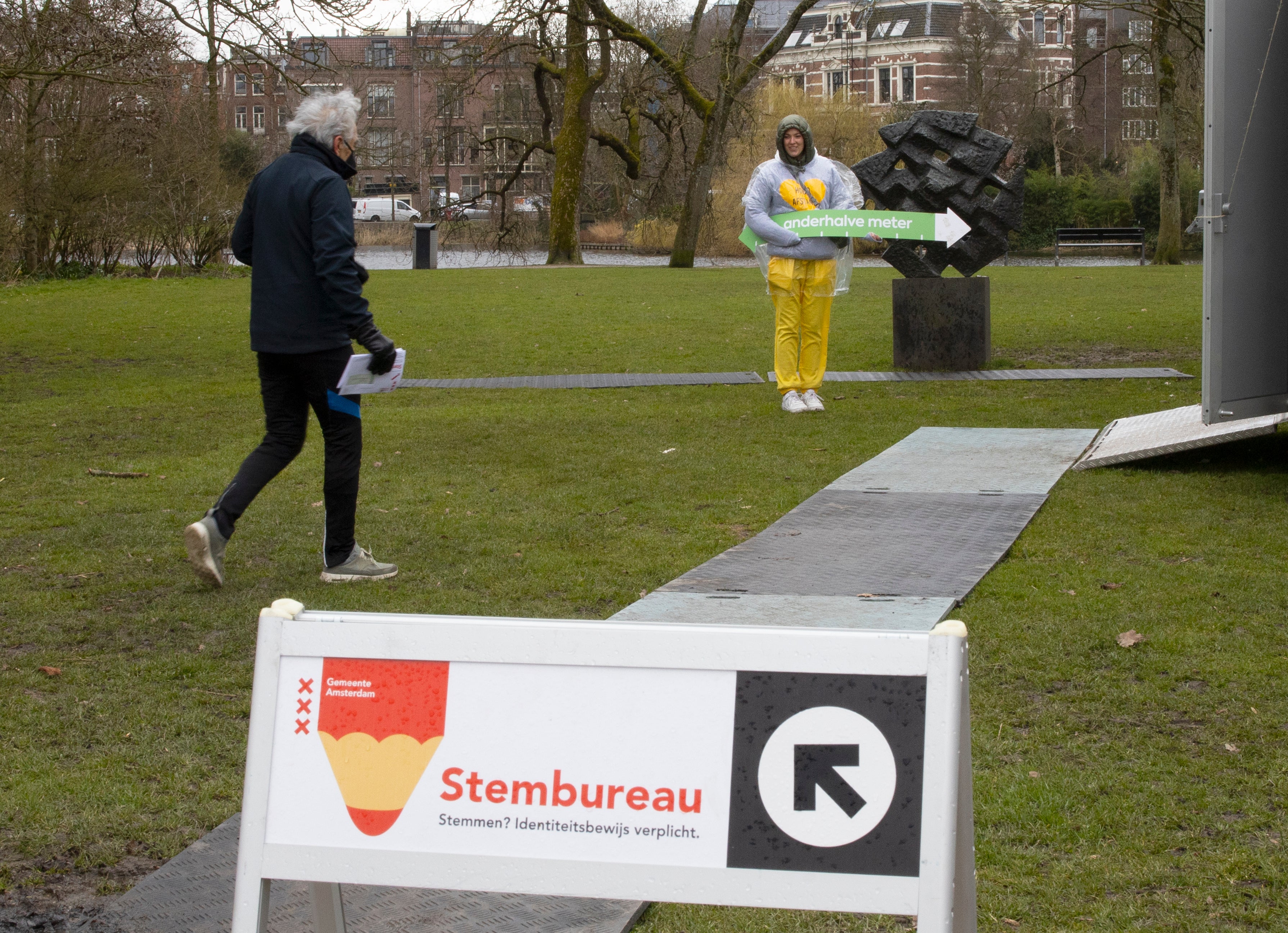Dutch PM's poll lead shrinks as election enters 2nd day
A new survey shows that the lead of Dutch Prime Minister Mark Rutte’s conservative party in polls is continuing to shrink ahead of the second day of voting in coronavirus-affected national elections

Your support helps us to tell the story
From reproductive rights to climate change to Big Tech, The Independent is on the ground when the story is developing. Whether it's investigating the financials of Elon Musk's pro-Trump PAC or producing our latest documentary, 'The A Word', which shines a light on the American women fighting for reproductive rights, we know how important it is to parse out the facts from the messaging.
At such a critical moment in US history, we need reporters on the ground. Your donation allows us to keep sending journalists to speak to both sides of the story.
The Independent is trusted by Americans across the entire political spectrum. And unlike many other quality news outlets, we choose not to lock Americans out of our reporting and analysis with paywalls. We believe quality journalism should be available to everyone, paid for by those who can afford it.
Your support makes all the difference.The lead of Dutch Prime Minister Mark Rutte s conservative party in polls continued to shrink Tuesday, according to a new survey published ahead of the second day of voting in coronavirus-affected national elections.
Rutte's People's Party for Freedom and Democracy still retains a lead of some 10 percentage points over its nearest rival, the anti-immigration Party for Freedom led by anti-Islam firebrand Geert Wilders
According to the respected Peilingwijzer survey, Rutte's party is in line to win between 34 and 38 seats in the 150-seat lower house of parliament. Wilders' party is forecast to win 17-21 seats.
Rutte has led the last three Dutch ruling coalitions and has been in power for more than a decade. His popularity soared last year as he repeatedly appeared on television to solemnly explain the government's efforts to rein in the spread of the coronavirus. However, it has waned in recent weeks as the election nears and public impatience with the country's tough lockdown increases.
“I think Rutte has done well,” said Guido van den Elshout, 72, after voting in the Dutch parliament building in The Hague on Monday.
He added, however, “I don’t vote for him. He is a good prime minister, but I think he is a bit past his sell-by date.”
Interior Minister Kajsa Ollongren said Tuesday in a letter to Parliament that she will tell municipalities that are responsible for counting votes to amend the way they deal with postal votes after reports emerged Monday of what her ministry called “procedural mistakes with postal votes.”
National broadcaster NOS reported that a number of municipalities said some postal votes could be invalid because the voters had not followed instructions correctly when mailing their ballot paper.
The broadcaster reported from the small municipality of Bernheze that 1,688 people voted by mail and 143 of the votes could be invalid.
The increased use of postal voting for people aged 70 and over is among measures intended to make the election safe amid stubbornly high coronavirus infection rates in the Netherlands a nation of just over 17 million where more than 16,000 people are confirmed to have died of COVID-19.
Voting has been spread out over three days, starting Monday, with the first two days intended to allow people who are considered more vulnerable to the virus to vote in polling stations that are not as busy as on normal election days.
The final day of voting is Wednesday and results are expected to begin rolling in after polling stations close at 9 p.m. (2000 GMT) and into Thursday.
The party that wins the most seats is first in line to lead talks to form the next ruling coalition. If that is Rutte, and he succeeds in cobbling together a new government, he could become the country's longest-serving prime minister.